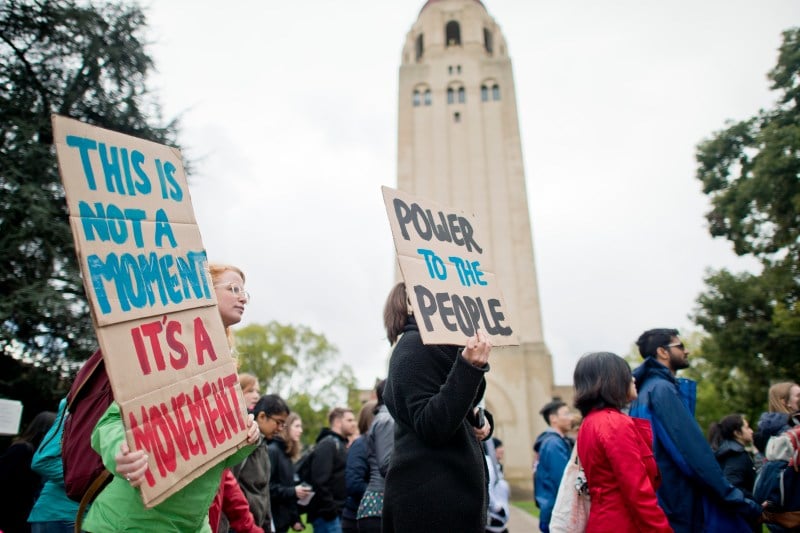I’ve never been one to take strong stances on political issues. If there are arguments to be made on either side of a contentious topic, I’m usually able to empathize enough with both viewpoints so as to temper my own leanings. I’m wary of absorbing my parents’ or peers’ values wholesale, and I’m much better at playing devil’s advocate than actually standing up for any particular position.
Recently, I’ve realized that my trouble with taking sides arises not so much from indecision, but rather a series of deep-seated value conflicts. If an issue has two (or more) sides, I’ve noticed, there is nearly always a set of good values in tug-of-war beneath the surface.
Let’s take climate change, for example, since many people write off conflicts around this issue as science-believers versus science-deniers. These two groups, however, are not homogeneous or completely value-aligned. Within the group who believes climate change is real and potentially catastrophic, there is still an inherent tension between climate protection and human development and flourishing. Very few people actually fall entirely on the side of climate protection (i.e. wishing that the human race would go extinct to protect the planet), and few also align purely with the human development side (i.e. “climate change may be real, but let’s burn fossil fuels forever anyway”).
Most people fall somewhere in the middle: they want people to be healthy and taken care of, but they also want to put some protections in place to avoid the worst consequences of climate change. They want developing countries to raise living standards without doubling the amount of fossil fuels consumed globally. Most people are navigating a tricky balancing act between climate protection and human well-being. And until we have perfect substitutes for fossil fuels, plastics and other environmental irritants, the value conflict will continue to play out, often unacknowledged, underneath debates about carbon taxes, clean energy standards, global development and other climate-adjacent arenas.
When it comes to climate change, what do I believe? Where do I fall on the spectrum between climate protection and human needs? I honestly have no idea. I don’t know exactly how much environmental damage I’d be willing to accept to bring reliable electricity and sanitation to the poorest parts of the world. I don’t know how much technological progress I would give up to save a species of endangered mollusk.
I ran the same thought experiment across many of today’s pressing issues: wealth inequality and the social safety net, education, immigration, even abortion. I hoped that some universal value might jump out, some utilitarian principle by which to calibrate all my opinions. In doing so, I discovered something surprising: I don’t even know what values I’d want to permeate an ideal world, let alone the one we’re dealing with.
Would I want us to have a maximally happy world? Not if it was achieved by implanting electrodes in the pleasure-producing parts of our brains. What about a maximally equal world? Certainly there is a strong tension between equality and fairness (equal pay for equal work requires that everyone does equal work). A world without pain? No, because pain often brings meaning to our lives.
I don’t have a proper answer to this question, but rather hope that you, too, perform this exercise. Think about issues around you and what deeper values, all well-intentioned, are at work in bringing about the tension. Consider what might be your closest-held values and how they work against each other. If nothing else, this is an exercise of empathy: an understanding of how well-meaning people might so vehemently disagree on important issues.
As children, we are led to believe that all of the good values and morals we are taught can coexist harmoniously in our daily lives and our societies. This implies that people who disagree with us hold bad values and morals since anyone who shares our values should share our vision of society. This simply isn’t true, and accepting the premise of total value-harmony is sickening to us and to society.
So be thoughtful about what your values are, why you hold them and any strange cases (e.g. brain electrodes) that would make you change them. Think about situations in which your ideals oppose each other and how you reconcile them. And, most of all, think about how others might come to a different conclusion with good minds and hearts, and how we might all use conversations about deeper values to propel our society in a more productive, empathetic, self-aware direction.
Contact Avery at averyr ‘at’ stanford.edu.
